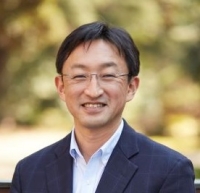About the lecturer
| Jin Sato is a professor of development studies at the Institute for Advanced Studies on Asia, the University of Tokyo. Sato focuses on the politics of natural resources and foreign aid in the context of Southeast Asia. He is currently a visiting professor at Columbia University Climate School. He also served as a visiting professor at the School of Public Policy at Princeton University from 2016-2020 where he taught classes on environmental policy and development in Asia. Sato also served as a policy advisor (JICA expert) to the Ministry of Natural Resources and Environment of the Thai government (2004-2005). Sato is the ex-president of the Japan Society for International Development (JASID). He is the winner of the Japan Academy Medal in 2013. Sato holds an MPP from the Kennedy School at Harvard University and a PhD in International Relations from the University of Tokyo. | 
Prof. Jin SATO
|
Introduction video
Dilemmas of Development in Asia
Syllabus
| 1 | Subject | Dilemmas of Development in Asia |
| 2 | Field | Politics |
| 3 | Key words | foreign aid, development, environment and climate change, Southeast Asia, democracy |
| 4 | Global Unit | 1 |
| 5 | Lecturer | Jin SATO |
| 6 | Period | July 1 - 12, 2024 |
| 7 | Time | 17:00-18:30 (Japan Standard Time) |
| 8 | Lecture style | In-person (on Hongo Campus) |
| 9 | Evaluation Criteria | Excellent (S) 90–100%; Very good (A) 80–89%; Good (B) 70–79%; Pass (C) 60–69%; Fail (D) 0–59% |
| 10 | Evaluation methods | Class participation 40%, Group Presentation 20%, Final paper 40% |
| 11 | Prerequisites | No prior knowledge is required but students need to commit their time for the reading for each session. |
| 12 | Contents | Purpose Students will be able to ask different, more nuanced questions about development and be able to engage more critically with the mainstream discourse such as SDGs. Description This in-person course aims to deepen students’ understanding of theories and practice of development in Asia. Based on the instructor’s field experience in Thailand, Laos and Cambodia, the course offers a vivid and grounded understanding of the various types of dilemmas in the process of development and aid. Schedule
Assignments 1) Each day (aside from the first and last), there will be an article (or a book chapter) assigned to which selected students are asked to summarize and comment. 2) On the “reflection day” at the middle of the course, students are asked to present in groups for 10 minutes. 3) A 5 page (double-space) final reflection paper will be assigned at the end of this course. |
| 13 | Required readings | Readings will be available on the class website prior to the class. |
| 14 | Reference readings | - |
| 15 | Notes on Taking the Course | - |
UTokyo Global Unit Courses (GUC)
International Education Promotion Group, Education and Student Support Department
The University of Tokyo, 7-3-1, Hongo, Bunkyo-ku, Tokyo 113-8652 JAPAN
For inquiries regarding GUC, kindly direct them to the following email address:
utokyo-guc.adm(at)gs.mail.u-tokyo.ac.jp *Please change (at) to @
International Education Promotion Group, Education and Student Support Department
The University of Tokyo, 7-3-1, Hongo, Bunkyo-ku, Tokyo 113-8652 JAPAN
For inquiries regarding GUC, kindly direct them to the following email address:
utokyo-guc.adm(at)gs.mail.u-tokyo.ac.jp *Please change (at) to @






